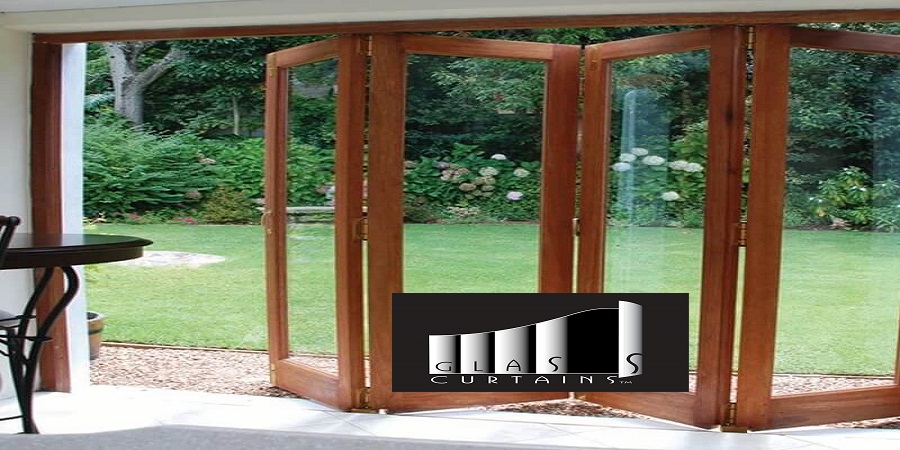Frameless folding doors represent a significant innovation in modern architecture, offering both aesthetic and functional benefits. Unlike traditional doors that come with prominent frames and hinges, page dulichbinhduong.top share frameless folding doors are characterized by their sleek, unobtrusive design. This minimalist approach not only enhances the visual appeal by providing a seamless transition between spaces but also maximizes natural light and extends sightlines.
Introduction to Frameless Folding Doors: A Modern Architectural Trend
These doors operate on a folding mechanism, enabling them to neatly stack to one side when opened. This feature optimizes space usage, making them an ideal solution for contemporary living where open-plan interiors and space efficiency are highly valued. Whether installed in residential or commercial projects, these doors contribute to a sense of expansiveness, erasing the boundaries between indoor and outdoor environments.
The design elements of frameless folding doors emphasize clean lines, transparency, and simplicity. Typically constructed from high-quality tempered glass, they offer durability and safety without compromising on elegance. The absence of bulky frames allows for uninterrupted views, GlassCurtains making them particularly popular in scenic locales where maximizing the vista is a priority. Additionally, the use of advanced hardware ensures smooth and effortless operation, further enhancing user experience.
In the context of Vietnam, there is a growing interest in minimalistic and space-saving architectural solutions. Urban dwellers are increasingly turning towards designs that offer both practicality and aesthetic appeal. This trend has fueled the popularity of frameless folding doors, as they cater perfectly to the contemporary preference for streamlined spaces. Their versatility in application—be it in homes, offices, or commercial establishments—underscores their rising prominence in modern Vietnamese architecture.
As we delve deeper into this topic, we will explore the various factors contributing to the rise of frameless folding doors in Vietnam, including technological advancements, market trends, and the broader cultural shift towards modern, minimalist design philosophies.
Historical Context and Evolution
The history of folding doors dates back to ancient civilizations, where early iterations can be found in Greek and Roman architecture. These original designs were primarily utilitarian, crafted from basic materials such as wood and metal. The concept of doors folding to save space was ingenious in its simplicity and had practical applications in various types of constructions, from temples to homes.
In the centuries that followed, folding door mechanisms evolved considerably. The medieval period saw the addition of more intricate hinges and supports, allowing doors to fold more seamlessly and with increased stability. The Renaissance era further contributed to the aesthetic and functional aspects of folding doors, incorporating elements of advanced woodworking and metallurgy.
The 20th century marked significant technological advancements that directly impacted the development of folding doors. With the advent of modern manufacturing techniques and the discovery of new materials such as aluminum and high-strength glass, folding doors became not only more durable but also more versatile in design. These innovations laid the groundwork for what would eventually become the frameless folding doors of today.
One of the most critical milestones in the evolution of folding doors was the introduction of the frameless design. Unlike their predecessors, frameless folding doors minimized the use of thick frames, thus offering an unobstructed view and seamless integration with modern architectural aesthetics. This design was enabled by advancements in industrial glass production and sophisticated hardware systems that allow for smooth folding and structural integrity.
Materials also played a crucial role in this transformation. High-performance insulated glass, advanced polymer seals, Glass Curtain and corrosion-resistant metals have all contributed to the feasibility of frameless designs. These technologies ensure that frameless folding doors provide both aesthetic appeal and functional benefits such as energy efficiency, weather resistance, and enhanced security.
Benefits and Advantages in Modern Architecture
The integration of frameless folding doors in modern architectural designs offers numerous benefits that significantly enhance both the functionality and aesthetics of spaces. One of the primary advantages is their space-saving capability. Unlike traditional framed doors, frameless folding doors can be neatly folded away, creating a seamless transition between indoor and outdoor areas. This feature not only maximizes usable space but also fosters greater flexibility in design and usage.
Aesthetic appeal is another notable benefit. Frameless folding doors provide a sleek and contemporary appearance, which complements the minimalist ethos often found in modern architecture. Their unobtrusive design does not interrupt sightlines, allowing for uninterrupted views and a clean, sophisticated look. This makes them an excellent choice for both residential and commercial settings where visual cohesion and style are paramount.
Increased natural lighting is a significant advantage brought by frameless folding doors. Their expansive glass panels allow more daylight to flood interior spaces, creating a brighter and more inviting atmosphere. This influx of natural light not only enhances the visual appeal of a building but also contributes to energy efficiency by reducing the need for artificial lighting during the day.
Furthermore, frameless folding doors enhance the indoor-outdoor flow, facilitating a more harmonious connection between interior and exterior environments. This is particularly beneficial in areas with pleasant climates, where the boundary between indoor and outdoor living can be blurred to create an expansive, unified space. Such a setup is highly desirable in both homes and commercial establishments, such as cafes and restaurants, where an open, airy atmosphere can significantly enhance the experience.
Read more: Frameless Glass Sliding Folding Systems Thailand should know
The versatility of frameless folding doors cannot be overstated. They are suitable for a wide range of applications, from residential patios and pool areas to commercial spaces and office partitions. Their adaptability in various settings underscores their superiority over traditional framed doors, which often lack the flexibility and modern appeal that frameless designs offer. By choosing frameless folding doors, architects and designers can achieve a dynamic and contemporary aesthetic while delivering practical benefits that enhance the overall functionality of the space.
